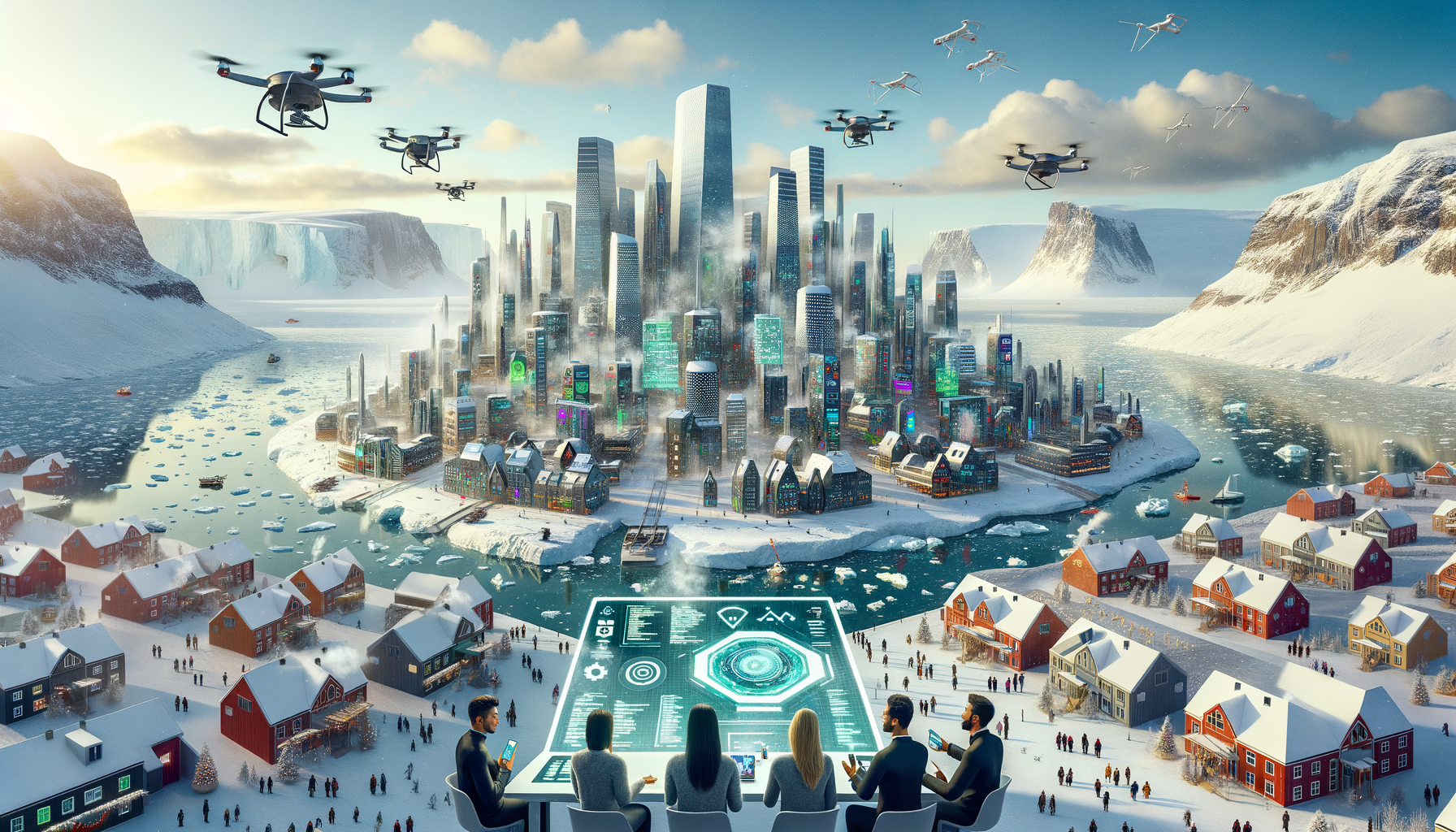By Great Day News Editorial Team

What if the next Silicon Valley wasn’t in California—but in Greenland?
That’s the bold, futuristic idea quietly making waves among some influential tech investors and political strategists. A concept that seems like science fiction to some and libertarian utopia to others: the creation of a “Freedom City” on Greenland’s icy terrain—a privately developed, tech-friendly urban hub built on innovation, autonomy, and minimal regulation.
While the idea may sound far-fetched, sources close to major players in both political and venture capital circles suggest it’s being discussed in serious terms.
🧭 What Is a Freedom City?
A Freedom City is a proposed model of a highly autonomous, privately planned urban area. It typically reflects ideals from libertarian or techno-utopian thinking: streamlined governance, low taxation, little to no corporate regulation, and a heavy emphasis on technological advancement.
Imagine a place where entrepreneurs could build and test cutting-edge innovations without excessive red tape—where blockchain, AI, biotech, and even advanced space exploration technologies could thrive without interference.
The idea has been floating around for years in tech circles, with previous efforts aimed at floating cities, special economic zones, or even seasteading platforms in international waters. But Greenland—a land of vast, open space, relative geopolitical quiet, and strategic location—has recently emerged as an intriguing candidate.
❄️ Why Greenland?
Greenland, an autonomous territory under the Kingdom of Denmark, has long drawn global attention for its natural resources and geographic positioning. But the recent shift in interest is more philosophical than geological.
Some wealthy donors and futurist thinkers see Greenland as a blank canvas—a place to build new social and economic models from the ground up, untethered from the constraints of existing political systems.
Greenland’s minimal population, abundant land, and potential for Arctic shipping routes only add to its appeal. To proponents, it could be transformed into a next-generation innovation hub, attracting top talent and investment from across the world.
🧠 Who’s Talking About It?
While public details are scarce, it’s clear that the idea has piqued the interest of major figures in tech and politics. One name associated with these discussions is Ken Howery, a venture capitalist and former U.S. ambassador to Sweden, known for his early partnership with PayPal co-founder Peter Thiel.
Howery has deep ties to the tech world and has long championed forward-thinking, market-driven solutions. His alignment with influential voices in the innovation space makes him a natural figure to explore the potential of a place like Greenland.
And while official statements have been few, the very presence of such conversations suggests a growing willingness to reimagine what cities—and even countries—might look like in the digital age.
🚧 Opportunity or Overreach?
The idea of a Freedom City is as controversial as it is ambitious. Critics warn that efforts to privatize governance or minimize public oversight could lead to corporate dominance or social inequality. Others raise concerns about the ethical implications of developing land in regions like Greenland without fully engaging the local population or respecting indigenous communities.
On the other hand, supporters argue that traditional governance models are struggling to keep pace with rapid technological change—and that experimental zones like these could serve as living laboratories for new, better ways of organizing society.
At its best, the vision is one of possibility: a self-sustaining, tech-powered metropolis that balances freedom with innovation, and progress with responsibility.
💭 What Happens Next?
For now, the “Freedom City” idea remains just that—an idea. But in an era where billionaires build rockets, cryptocurrencies disrupt banking, and AI begins writing code and poetry, the notion of building a new city from scratch doesn’t seem quite as impossible as it once did.
Whether Greenland ever becomes home to the world’s next tech metropolis remains to be seen. But one thing is certain: the conversation about how and where we build the future is already well underway.
And it’s starting in some of the coldest, most unexpected corners of the world.
This article was inspired by public discussions reported in early April 2024 about potential interest in Greenland as a site for innovation hubs and “Freedom Cities.”